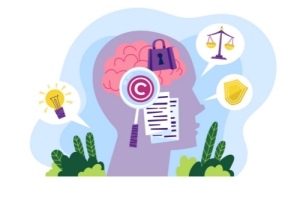Hello and welcome back to the Skills 360 podcast. I’m your host, Tim Simmons, and today I want to talk about securing a great year-end bonus.
We all know that money’s not the only workplace incentive, but it sure is an effective one. Nothing beats a nice cheque at the end of the year to say “thanks for all the hard work.” That bonus can help us enjoy the holiday season more and feel better about heading back to the office when the holiday is over.
So, how can you make sure you get that bonus? Or how can you increase the size of your bonus? Well, first of all, if you just started thinking about this now, you might be out of luck. You can’t just suck up to your boss in December and expect to be rewarded. If you’re looking for an easy workaround to hard work, I’m sorry to disappoint you.
And if you think that you deserve a bonus because you showed up on time every day and never ducked out early, then think again. If you make hamburgers at McDonalds, then your employer pays you for your time, in the form of a wage. But in professional settings, where people earn salaries, it’s not your time that your employer pays for. It’s your value.
So how valuable are you? And how can you show it? This is not about meeting expectations, but about exceeding expectations. This is what makes a bonus different from a salary. It’s a bonus. It’s extra. And to get a good bonus, you need to be extraordinary.
You’re probably thinking that getting a bonus is about what you did over the past year. Sure, that’s part of it. But a bonus is not strictly a reward. It’s a kind of investment. A bonus not only says “good work,” but it also says “we want you to stick around because you are valuable to us.”
So how can you be someone that the company will throw money at to keep around? It’s not just about the quality of your work, which I’ll talk about in our next lesson, but about your approach to work. And one critical element of each good approach is positivity. In meetings, are you saying “yes, we can” or “no, we can’t?” Do you look at problems constructively? Or do you tend to complain? When something goes wrong, do you see opportunities to learn? Or do you get deflated and drag everyone else down with you?
Of course, your workplace culture will impact how positive you are. If you’re in an office with a bunch of Debbie Downers, it’s extra hard to keep your chin up. But in those situations, it’s that much more important. This is basic supply-and-demand economics. When positivity is in short supply, your positive outlook increases in value.
A related quality that also increases your value is working well with others. Even if you’re doing technical work that requires you to toil away alone for much of your time, you will be evaluated based on how well you get along with others. We might allow geniuses a certain degree of grumpiness, but most employers would rather you be a good team player than a genius.
Indeed, intelligence and innate talent mean nothing if you’re not willing to work with others, to learn, and to grow. That word “grow” is key. Have you ever heard of a “growth mindset?” If you have a growth mindset, you have the ability to learn new things, you accept challenges, you work hard, and you are inspired when other people succeed. On the other hand, if you have a “fixed mindset,” then you think it’s all about innate ability. When you meet difficulty, you give up or feel badly. And when other people succeed, you feel threatened.
Which mindset do you think employers are more likely to reward with a fat bonus? The growth mindset or the fixed mindset? Of course, for the vast majority of employers, it’s the growth mindset. Granted, there are some organizations that suffer as a whole from a fixed mindset. These are companies that don’t know how to innovate or adapt to the complex and ever-changing business environment. In that kind of setting, you probably have many more fundamental concerns than hoping for a big bonus.
So there you have it. I hope you can see that a bonus is a reward for demonstrating your value as an employee, not just for meeting expectations. And as we’ve talked about, being valuable hinges on your approach to work. Your value goes up when you are positive, when you work well with others, when you accept challenges, and you believe that hard work is more important than talent.
That’s all for today. So long. And see you again soon.















